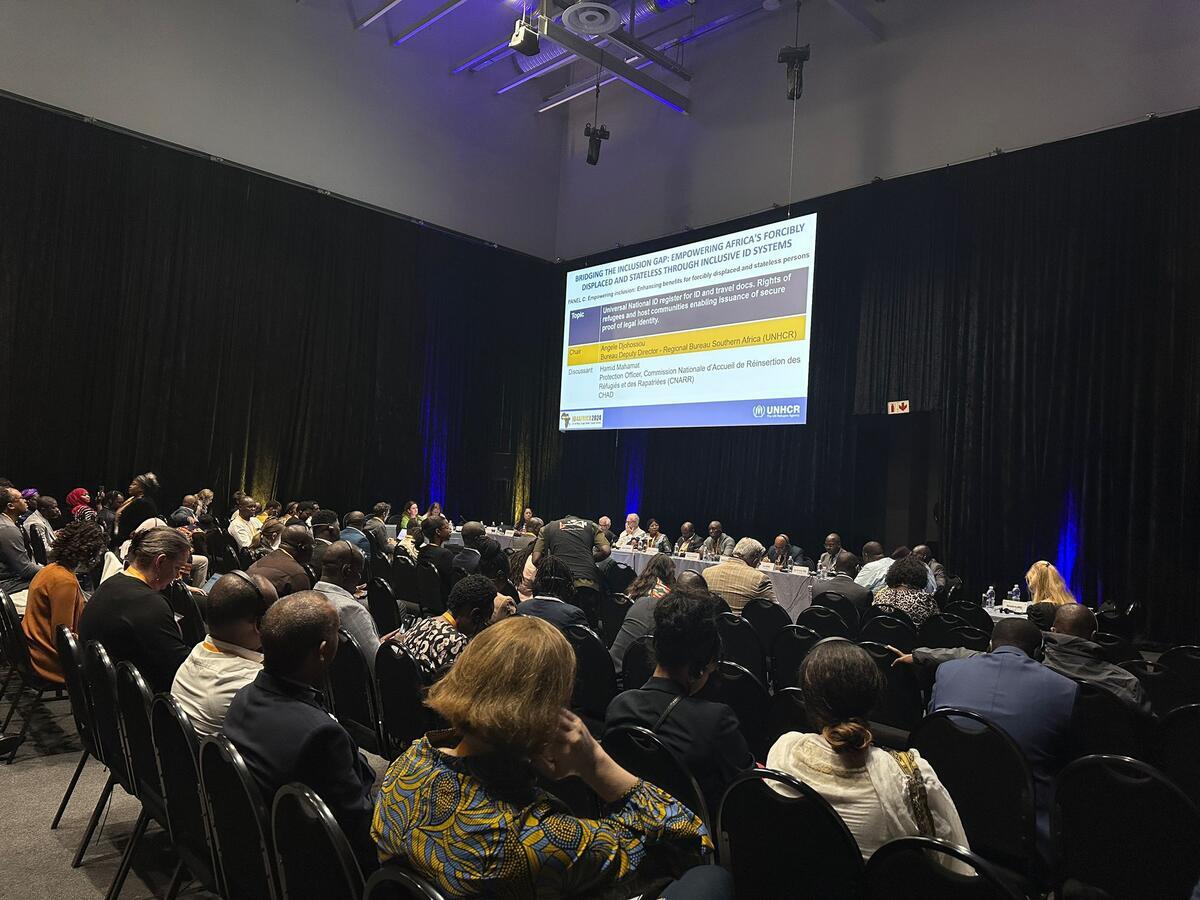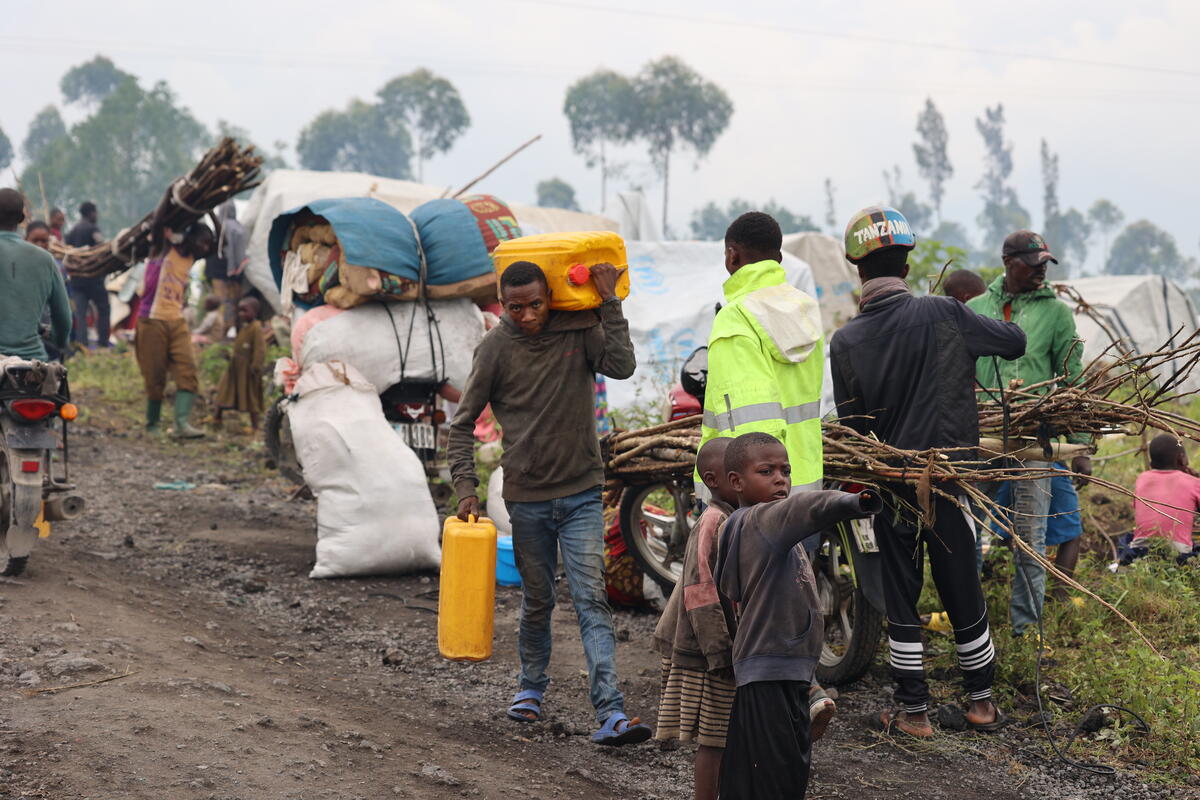Rwanda: move to a new camp transforms life for resilient amputee
Rwanda: move to a new camp transforms life for resilient amputee

MUGOMBWA REFUGEE CAMP, Rwanda, June 25 (UNHCR) - Judith self-consciously adjusts her skirt as she balances her two-year-old-son on her knee. Her sarong-like traditional kitenge covers one leg to her ankle and she makes sure her other, amputated, leg remains hidden.
But it's not her missing leg - lost to the war in her native Democratic Republic of the Congo (DRC) - that's on Judith Mukansanga's mind today. The 31-year-old refugee is celebrating having a safe home of her own for her three children, and being able to get around with relative ease despite her disability.
Judith has overcome obstacles that would daunt many others. She lost her right leg to a gunshot wound during fighting some two years ago between DRC government forces and rebels in North Kivu province. She decided to flee with her family to neighbouring Rwanda, making the 75-kilometre journey mostly by motorbike because she could not walk far on crutches.
During their flight, she and her children became separated from her husband; she later heard rumours he had been taken into custody as punishment for allegedly joining a rebel group. She has not seen him in two years.
Once she reached safely in western Rwanda, Judith and her three children had to spend a year in the Nkamira Transit Centre, close to the DRC border. It was originally designed to house refugees for only days. Rwanda, a crowded country, had limited space for new arrivals in its four existing refugee camps.
"Life in the transit centre was very difficult for me," Judith now recalls. "It was especially difficult to sleep at night."
She found it hard getting around the cramped centre on her crutches. Families slept almost on top of each other; privacy was non-existent and overcrowding led to disputes among people forced to be neighbours.
In addition to that, she worried about her two school-age girls, seven years and 10, because they were missing out on formal education. Instead, they attended informal English and Kinyarwanda lessons - sitting on the floor of an overcrowded classroom.
Since UNHCR built the new Mugombwa camp in southern Rwanda - and moved some 9,000 refugees here - life has improved for Judith, her two daughters and her baby boy.
Judith and her neighbours are getting along just fine. There's a hospital, in case anyone in the family gets sick. And her daughters are excited to be enrolled in the national education system and with "real desks to sit at!" UNHCR has not yet been able to provide her an artificial limb, but that is not uppermost in her mind.
"Although life is still a struggle for me, I am happy to have my own house," says an excited Judith. "I can sleep in peace. But most importantly, my children are safer and can attend a normal school." At long last, she says, "I have hope."
By Erika Fitzpatrick in Mugombwa Refugee Camp, Rwanda








